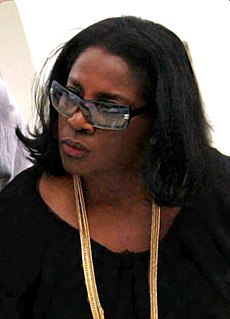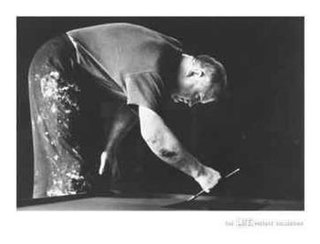A Quote by LaTanya Richardson
There is no one American beauty or just one beautiful color in the pantheon, especially in regards to black people - there is no better color.
Related Quotes
The university should color itself black and color itself mulatto — not just as regards students but also professors. Today the people stand at the door of the university, and it is the university that must be flexible. It must color itself black, mulatto, worker, peasant, or else be left without doors. And then the people will tear it apart and paint it with the colors they see fit.
Nowadays, people shoot digitally and it's all in color, but you press a button and it all goes to black and white. But it's not lit for black and white. So, it's a tricky thing. If you're going do black and white, you better remember to separate things with light, because color ain't gonna be there.
For many years, I have been moved by the blue at the far edge of what can be seen, that color of horizons, of remote mountain ranges, of anything far away. The color of that distance is the color of an emotion, the color of solitude and of desire, the color of there seen from here, the color of where you are not. And the color of where you can never go.
Black History is enjoying the life of our ancestors who paved the way for every African-American. No matter what color you are, the history of Blacks affected everyone; that's why we should cherish and respect Black history. Black history changed America and is continuing to change and shape our country. Black history is about everyone coming together to better themselves and America. Black history is being comfortable in your own skin no matter what color you are. Black history makes me proud of where I came from and where I am going in life.
Everything does come from nature. That's where you get new ideas. Just draw the landscape. I felt doing it with a bit of burnt wood was also good because I was drawing burnt wood with a piece of wood. I wanted to do black and white. After using color, I thought black and white would be good. You can have color in black and white. There is color in them, actually.
I, however, like black. It is a color that makes me comfortable and the color with which I have the most experience. In the darkest darkness, all is black. In the deepest hole, all is black. In the terror of my Addicted mind, all is black. In the empty periods of my lost memory, all is black. I like black, goddammit, and I am going to give it its due.
The difficulty with color is to go beyond the fact that it's color ? to have it be not just a colorful picture but really be a picture about something. It's difficult. So often color gets caught up in color, and it becomes merly decorative. Some photographers use it brilliantly to make visual statements combining color and content; otherwise it is empty.
The impressionistic method leads into a complete splitting and dissolution of all areas involved in the composition, and color is used to create an overall effect of light. The color is, through such a shading down from the highest light in the deepest shadows, sacrified an degraded to a (black-and-white) function. This leads to the destructions of the color as color.
We're looking at a story we want to call "Am I Black enough for you?" That's that whole question of who determines what "Black enough" is. Is it color? And if it's color, then are you telling me that Clarence Thomas is Blacker than Louis Farrakhan? If it's not color then what's the line that determines whether you are?




































